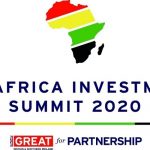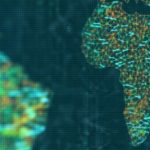Lucy Quist delivered the following address at the recently organised Allotey Workshop; a public lecture in memory of Professor Francis Kofi Ampenyin Allotey, Ghanaian mathematical physicist and former President of AIMS Ghana. The event took place in the University of Liverpool and hosted speakers from the African Institute for Mathematical Sciences (AIMS) network like Mama Foupouagnigni – President of AIMS Cameroon and Bubacarr Bah – German Research Chair of Mathematics with specialisation in Data Science, AIMS South Africa.
“I am an unashamed advocate for greater participation in science and STEM overall. Corporate experience has taught me that young people insufficiently engage with STEM. Life experience has taught me that we live in an age where the fundamental pillars of sustained prosperity are built on a foundation of STEM.
Have you ever heard people talk about the luck of the draw? I view this through the lens of where people are born. Too many people in Africa are born into circumstances that mean they have limited opportunity to realise their potential and create prosperity for themselves. Prosperity that means they thrive through life and not just survive it. Notice that I said ‘too many’ and not ‘all’.
It is with great pride that I join you today at the Allotey workshop. I had the great fortune to meet and do some work with professor Allotey. It was a surreal experience for me.
Growing up, some of us – interested in science and mathematics – heard about this professor at the University of Science and Technology in Ghana. He was this mythical person who was said to have such computational brain power that he could calculate anything in a heartbeat. So, imagine my sheer joy when I had the chance to work side by side with him.
I could not believe the news when I heard it. Professor Allotey was no longer with us. But he hadn’t been ill. You mean the brilliant gentleman who always returned a missed call and replied an email was no longer with us? It was a day of great sorrow and I pray that God rests his soul in perfect peace.
Today, in his memory, I am proud to talk about science and STEM as a whole in Africa. I am not an academic, so I will not attempt to present you with academic information. I am here as a business woman whose career is based on her love of STEM and who understands people. A business woman who has seen a number of countries in Africa and one who has witnessed firsthand what STEM can do for this great continent.
Allow me to share some thoughts on how we can build STEM in Africa.
Which Africa?
There is no such place as Africa. What we call Africa is 54 countries with a total of 1.2B people who speak about two thousand languages. Communication is compounded by the fact that countries in Africa have to deal with imposed national languages that have no bearing on their culture and traditions.
To build STEM in each of these great countries we must disaggregate the continent; set each country apart and approach each with absolute regard for their unique culture.
Why are culture and traditions relevant?
Once upon a time there was a woman who lived in southern Ghana. This woman was fortunate to be the oldest child of a prosperous chief and farmer. She spent her entire life nurturing her extended family. She had 9 children – only 3 survived into adulthood. But at the time that she lived losing children was seen as ‘normal’.
Overtime, this woman who had never stepped foot in a classroom, developed the ability to diagnose and treat most ailments her family members suffered.
One of her many chores was fetching water from her village stream. This stream had the clearest filtered water you can imagine. She had a very special relationship with the stream. She would literally talk to the stream when she went to fetch a bucket of water. She would carefully clear the stream of weeds and anything else that would hamper flow. She allowed that stream to thrive. Only her youngest child was formally educated. All her grandchildren, on the other hand, were formally educated. How does one translate what is known traditionally in one language to young people educated in a completely different language? The answer is that it is virtually impossible. The healing undocumented science of this woman was completely lost on her grandchildren.
Quite frankly, as I watched my grandmother clear the stream I used to undeniably think she was out of her mind. Who talks to and clears a stream?
Her conservation efforts were lost on me. The same way that every time she told me the best way to whiten teeth was to use charcoal I thought she was being ridiculous. My educated mind could not relate to the wealth of traditional knowledge my grandmother had stored up. Today, it is with great shame that I say that the stream no longer exists. My grandmother died in 2004. Today the greatest craze in beauty and cosmetics is charcoal. Toothpaste, mask, conditioner you name it. It is all about charcoal. Why did I not appreciate my grandmother’s knowledge and understanding of science? Is it just because she did not eloquently articulate her thoughts in English that I so comfortably speak?
Narrowing it down!
You may be thinking, ‘but Lucy, you paint a picture of what looks and sounds like a typical African story. Why do you make the case for 54 countries’. And I would say, ‘the little science I know tells me that even vegetation varies across a single country. There is more to the African scientist than what a single view will show.
It is imperative that if we are to develop STEM in Africa we recognise and build on the uniqueness each country presents. Of course, there will be similarities but why do we assume sameness when we never assume that the French perspective and the British perspective are the same? Aren’t they both European?
In fields such as medicine, we must encourage African scientists to tap into local know-how and enrich their knowledge with new findings. We must encourage them to make their use of science relevant to problem solving in their countries.
So where do we start from?

![[SPEECH] Building Science (STEM) in Africa](https://lucyquist.com/wp-content/uploads/2018/05/Prof-Allotey.png)


